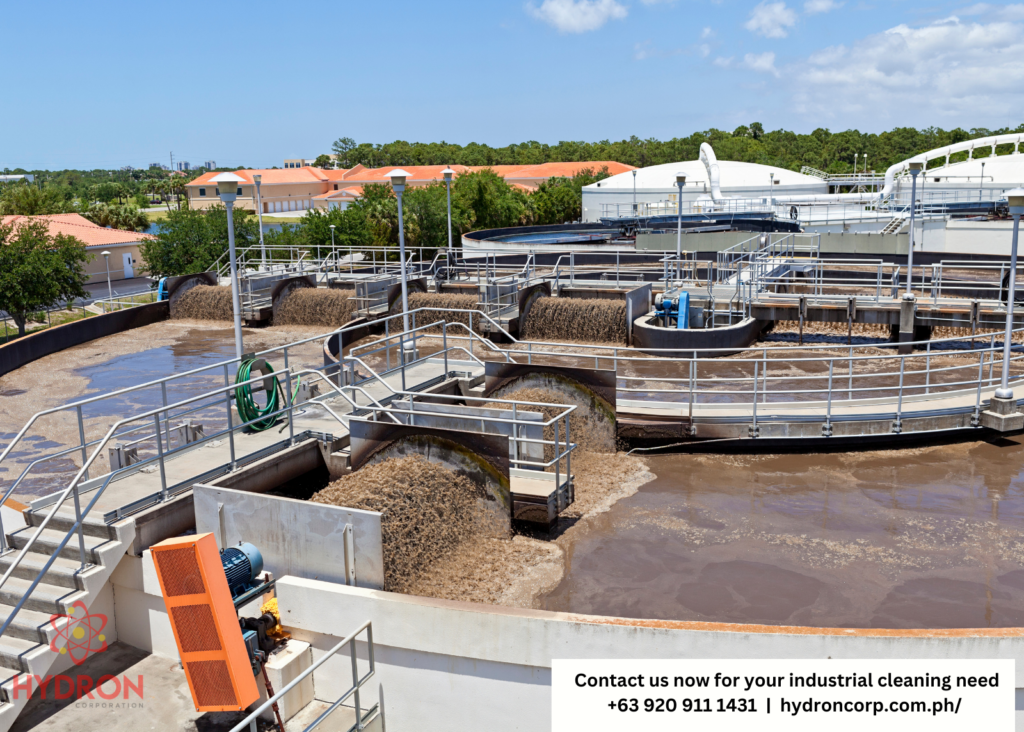How Wastewater Treatment Can Protect Our Environment and Health
Wastewater treatment is a vital process that goes unnoticed daily. However, the importance of wastewater treatment must be addressed as it plays a fundamental role in protecting the environment and human health.
Preventing Pollution of Natural Water Bodies
One of the primary reasons for wastewater treatment is to prevent the pollution of natural water bodies such as rivers, lakes, and oceans. Untreated wastewater contains a variety of contaminants, including bacteria, viruses, heavy metals, chemicals, and organic matter. When released directly into the environment, these pollutants can have devastating effects:
- Ecological Damage: Aquatic ecosystems can be severely impacted by pollutants. They can harm fish, aquatic plants, and other wildlife, disrupting the delicate balance of marine environments.
- Algae Blooms: Nutrients like phosphorus and nitrogen in untreated wastewater can lead to excessive algae growth in water bodies, causing harmful algal blooms. These blooms deplete oxygen levels, create dead zones, and harm aquatic life.
- Disease Spread: Pathogens in wastewater can contaminate water sources, posing health risks to people who use these waters for swimming, fishing, or drinking.
- Harm to Coral Reefs: Coral reefs are sensitive ecosystems that can be harmed by wastewater pollution, as they can introduce pollutants and pathogens that can damage or kill corals.
Wastewater treatment helps mitigate these environmental threats by removing or reducing the concentration of pollutants, making the treated water safer for release into natural water bodies.
Protecting Public Health
The relationship between wastewater treatment and human health must be considered. When wastewater is left untreated or inadequately treated, it poses significant risks to human health:
- Waterborne Diseases: Pathogens in untreated wastewater, such as bacteria and viruses, can cause many waterborne diseases, including cholera, typhoid, and gastroenteritis.
- Contaminated Drinking Water: If untreated wastewater finds its way into drinking water sources, it can lead to outbreaks of waterborne diseases, putting communities at risk.
- Food Safety: Contaminated irrigation water from untreated wastewater can lead to the contamination of crops, posing risks to food safety.
- Antibiotic Resistance: Antibiotics in wastewater can help create antibiotic-resistant bacteria, which is becoming more and more of a problem worldwide.
Wastewater treatment is designed to remove or inactivate these harmful microorganisms and contaminants, ensuring that the water released into the environment is safe and does not threaten public health.
Regulatory Compliance
Local, state, and national government agencies have established regulations and standards for wastewater treatment and discharge. Compliance with these regulations is not optional but mandatory for industries, municipalities, and wastewater treatment facilities.
Wastewater treatment facilities are equipped with the technology and expertise necessary to meet and exceed these regulations. They continuously monitor and optimize their processes to ensure the treated water meets or surpasses the required quality standards. This commitment to compliance is crucial for maintaining a healthy environment and safeguarding public health.
Sustainable Resource Management
Wastewater treatment is not just about disposing of wastewater safely; it’s also about resource management and sustainability. Many valuable resources can be recovered from the wastewater treatment process:
- Energy Generation: Biogas is a renewable energy source. It is produced by anaerobic digestion of the organic matter in wastewater and can be used for power generation or heating.
- Nutrient Recovery: Phosphorus and nitrogen, essential agricultural nutrients, can be extracted from wastewater and reused as fertilizers.
- Clean Water Reuse: Treated wastewater can be reclaimed for non-potable uses like irrigation, industrial processes, and cooling systems, conserving freshwater resources.
By harnessing these opportunities for resource recovery, wastewater treatment contributes to a more sustainable and circular economy, reducing waste and conserving valuable resources.
As we move forward, it’s essential to continue investing in wastewater treatment infrastructure, research, and innovation to address emerging challenges and improve the efficiency and sustainability of the process. Recognizing the significance of wastewater treatment allows us to appreciate the dedicated professionals and facilities working behind the scenes to ensure that our water remains clean and safe for future generations.


